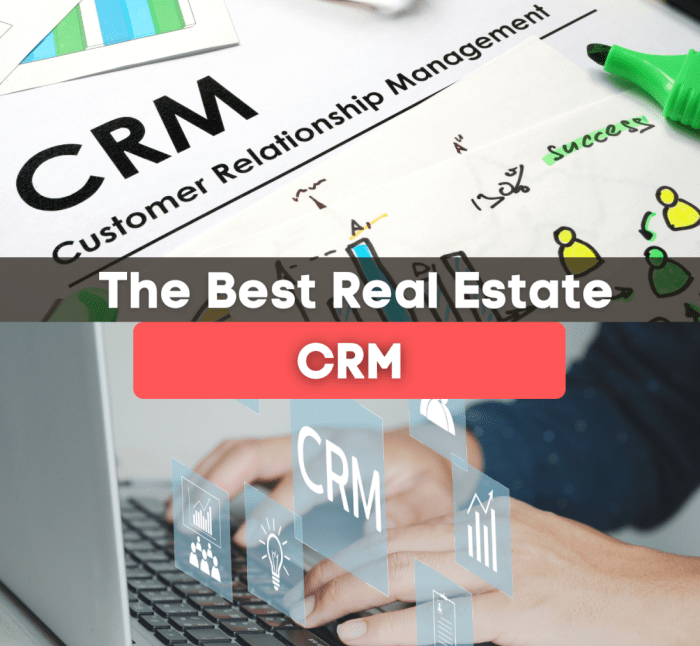Real estate CRM programs are revolutionizing how agents manage client interactions and streamline their operations. These sophisticated systems provide a centralized platform for storing client data, scheduling appointments, and tracking deals, ultimately improving efficiency and boosting profitability. By automating tasks and providing insightful analytics, these programs empower agents to focus on building strong client relationships and closing deals effectively.
A well-chosen real estate CRM can significantly enhance a real estate professional’s productivity and organization. Features like automated follow-up emails, customizable dashboards, and comprehensive reporting tools provide valuable insights into market trends and client preferences. This ultimately contributes to a more successful and sustainable real estate career.
Real estate is a competitive field, and staying organized and efficient is key to success. A robust CRM (Customer Relationship Management) program can be a game-changer, helping agents manage leads, track interactions, and ultimately close more deals. This guide delves into the intricacies of real estate CRM programs, covering everything from features to benefits to implementation strategies. We’ll also discuss various types of CRM software, pricing models, and how to choose the right one for your needs.
Understanding the Importance of CRM in Real Estate
In the fast-paced world of real estate, managing client relationships, lead follow-ups, and transaction details can quickly become overwhelming. Real estate CRM software streamlines these processes, allowing agents and brokers to centralize all client data, track interactions, and nurture leads effectively. This leads to increased productivity, improved communication, and ultimately, higher conversion rates.

Source: straight.com
Key Features to Look for in a Real Estate CRM
- Lead Management: A robust CRM should allow you to capture, categorize, and prioritize leads. This includes features like automated lead assignment, lead scoring, and personalized follow-up sequences.
- Contact Management: Store and manage comprehensive contact information, including communication history, property preferences, and past interactions. This feature is crucial for staying organized and personalizing interactions.
- Property Management: Track listings, showings, and other property-related details. This allows for efficient management of listings and helps agents stay ahead of the competition.
- Marketing Automation: Many CRMs offer automated marketing tools, such as email campaigns and social media posting. This helps nurture leads and keep your brand visible.
- Reporting and Analytics: Crucial for understanding performance and making data-driven decisions. This feature helps you track key metrics, such as conversion rates and lead response times.
- Integration with other tools: Seamless integration with other tools, like email platforms and calendar apps, is essential for a smooth workflow.
Types of Real Estate CRM Programs
Several CRM options cater to different needs and budgets. Understanding the different types available is key to selecting the right fit.
Cloud-Based CRM, Real estate crm programs
Cloud-based CRMs offer accessibility from any device with an internet connection, making them highly versatile for real estate professionals on the go. They often come with subscription-based pricing models, making them a popular choice.

Source: uphomes.com
On-Premise CRM
On-premise CRMs are installed and managed on your own servers. This gives you more control over data security and customization, but often comes with higher upfront costs and ongoing maintenance responsibilities.
Open-Source CRM
Open-source CRMs offer the most flexibility, as you can customize the software to your exact needs. However, they often require a significant technical understanding to implement and maintain effectively.
Choosing the Right CRM for Your Real Estate Business
Several factors influence the selection of a CRM. Consider your budget, the size of your team, and the specific needs of your business when making your choice. Don’t be afraid to ask for demos and trial periods before committing to a program.
Real Estate CRM Program Benefits
A well-implemented CRM can yield significant benefits for real estate professionals. Improved efficiency, better lead management, and enhanced client relationships are all potential outcomes.
Improved Efficiency
Automating tasks and centralizing data frees up time for agents to focus on core activities like client interaction and property showings.
Enhanced Lead Management
Track and nurture leads more effectively with automated follow-up sequences and personalized communications.
Strengthened Client Relationships
Maintain detailed records of client interactions and preferences to provide a personalized and professional experience.
Implementing a Real Estate CRM Program
Proper implementation is key to maximizing the benefits of a real estate CRM. A well-defined plan and adequate training are essential to successful adoption.
Frequently Asked Questions (FAQ)
- Q: How much do real estate CRM programs cost?
A: Pricing varies greatly depending on the features, vendor, and subscription model. Some are affordable, while others are quite costly.
- Q: Are real estate CRMs user-friendly?
A: Many modern real estate CRMs are designed with user-friendliness in mind, but training and getting familiar with the software is still important.
- Q: What are some good real estate CRM examples?
A: Popular examples include (e.g. [insert some reputable examples here], but this list is not exhaustive. Research is crucial).
Conclusion and Call to Action
Implementing a real estate CRM program is a strategic investment that can significantly boost your productivity and profitability. By streamlining processes, nurturing leads, and strengthening client relationships, a well-chosen CRM can be a powerful tool for success in the competitive real estate market. Consider your specific needs and budget when selecting a program, and prioritize thorough research and a clear implementation plan.
For a tailored consultation on selecting the perfect CRM for your real estate business, contact us today.
Ready to take your real estate business to the next level? Let us help you find the ideal CRM solution. Contact us today for a free consultation.
In conclusion, real estate CRM programs offer a powerful toolkit for agents looking to optimize their workflow and achieve greater success. By leveraging the automation and analytics features of these platforms, agents can significantly improve their client management, enhance communication, and ultimately drive more profitable transactions. Implementing a suitable CRM system is a strategic investment that can yield significant returns in the long run.
Popular Questions: Real Estate Crm Programs
What are the typical costs associated with implementing a real estate CRM program?
Pricing for real estate CRM programs varies widely depending on the features offered, the number of users, and the chosen subscription model. Some providers offer tiered pricing plans, while others may charge a per-user fee. It’s crucial to evaluate the features and costs carefully before committing to a particular program.
How can I integrate my existing marketing materials with a real estate CRM?
Many CRM platforms offer integrations with popular marketing tools and email platforms. This allows for seamless data flow and streamlined workflows, ensuring all marketing efforts are effectively managed within the CRM system.
What security measures are in place to protect my client data?
Reputable real estate CRM providers prioritize data security and implement robust measures to safeguard sensitive client information. These measures often include encryption, access controls, and regular security audits to maintain confidentiality and compliance.